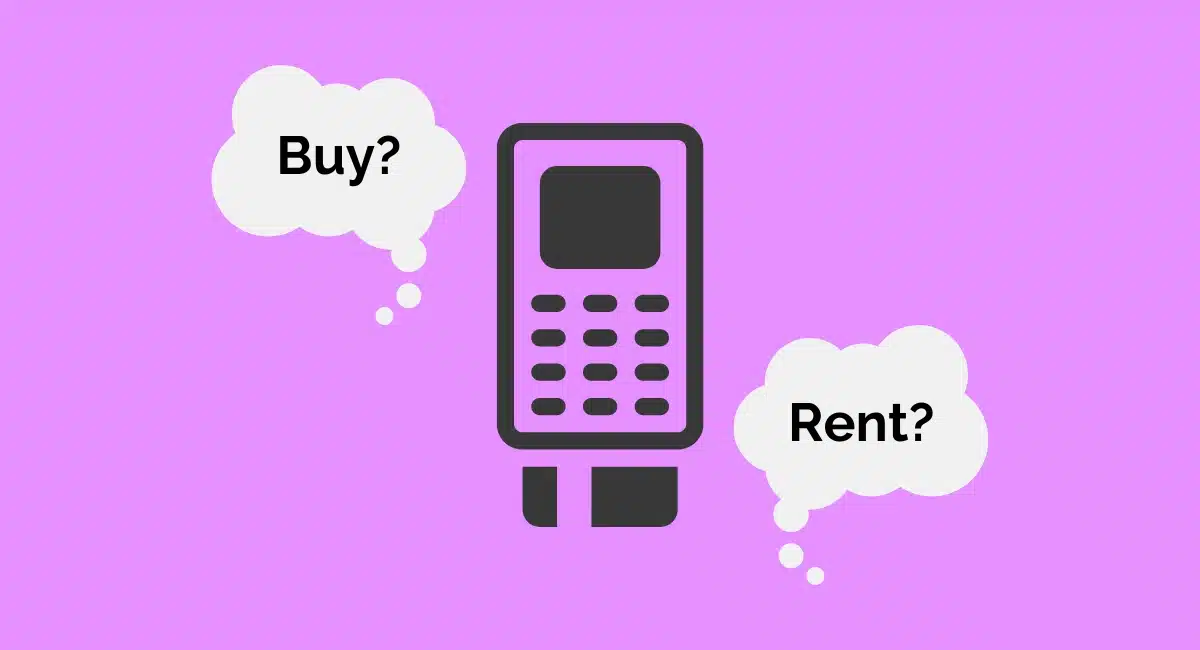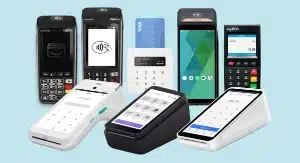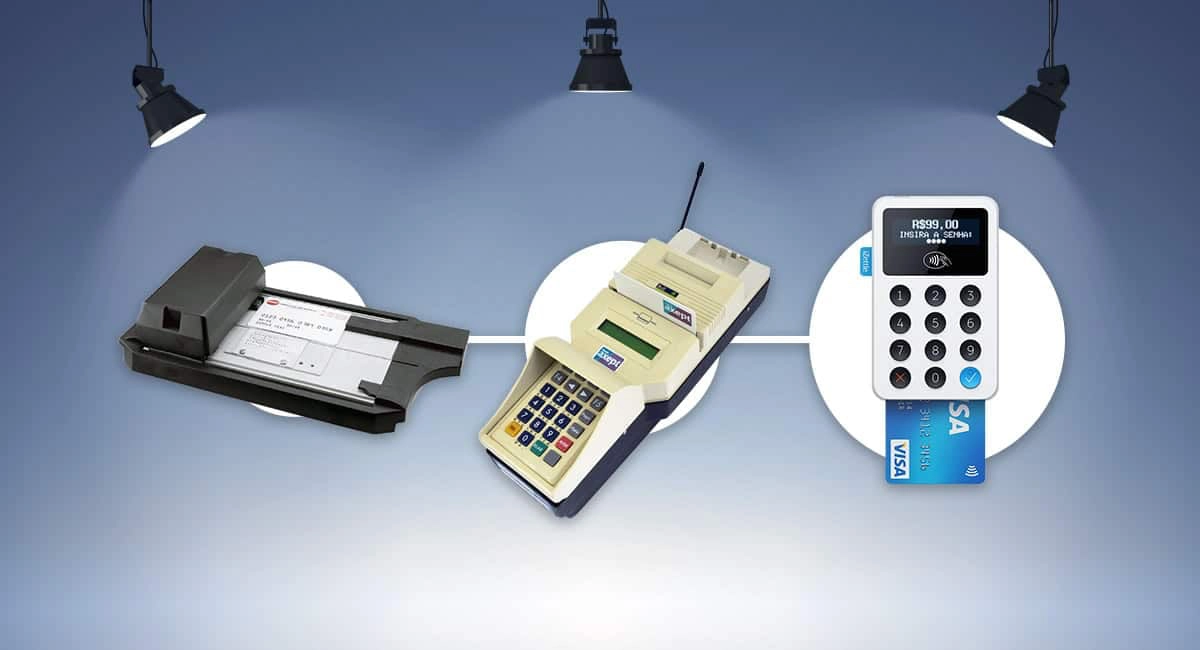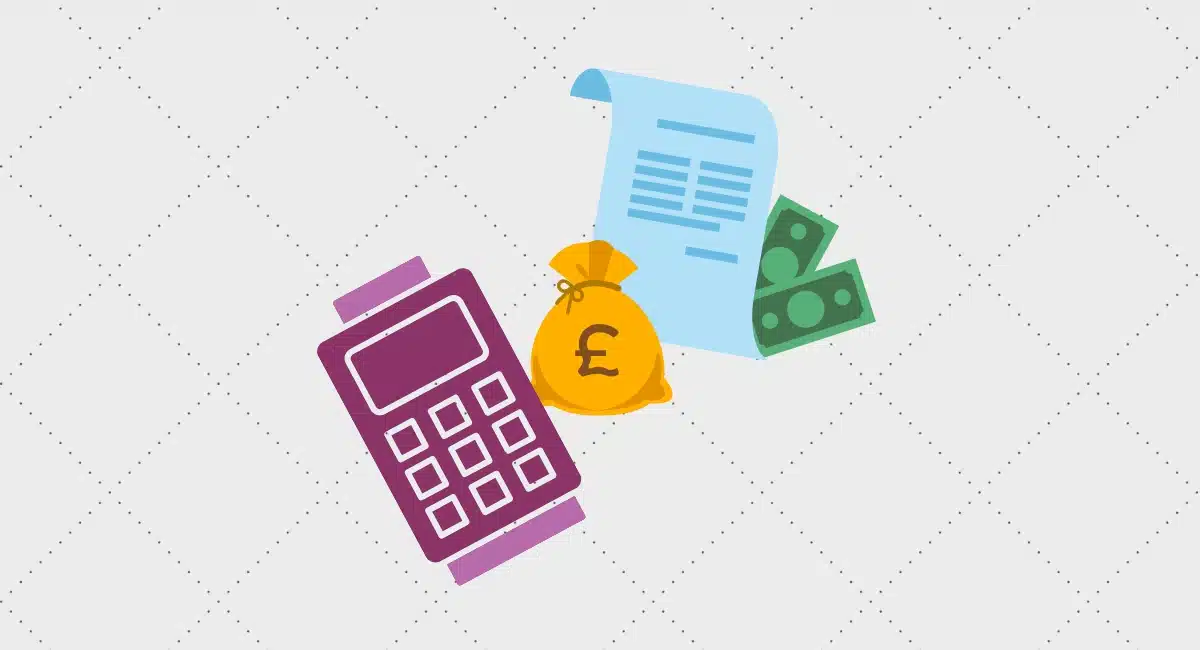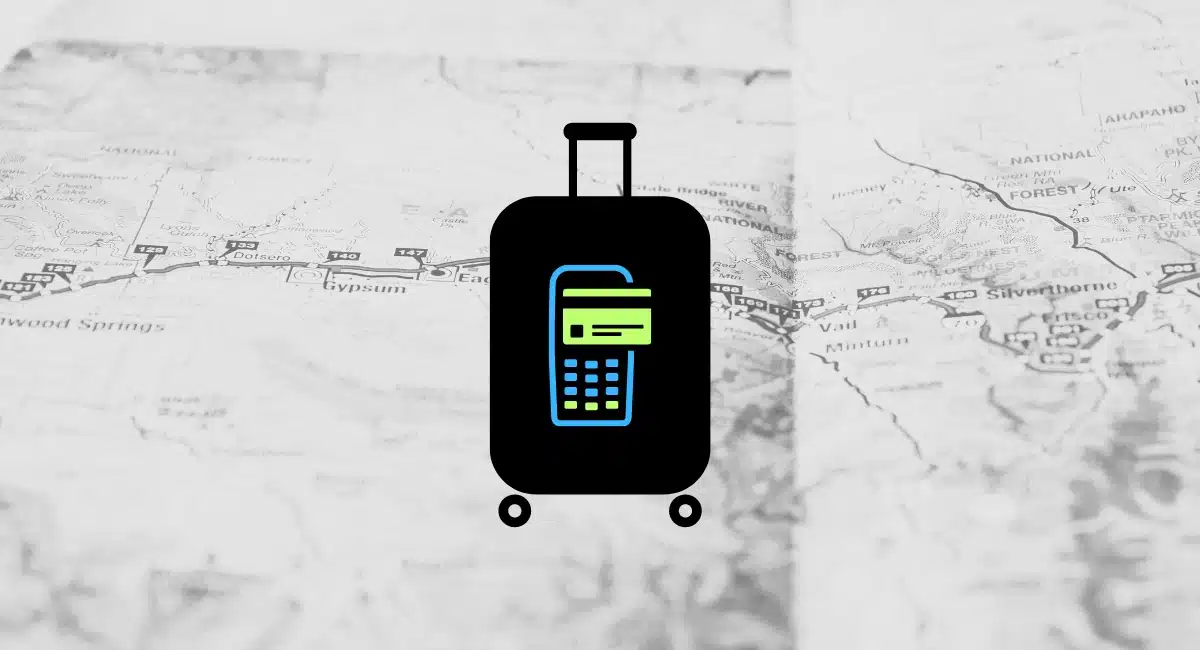Renting or buying a card machine is an important choice because they affect a merchant’s bottom line.
Essentially, buying a payment terminal upfront frees you from an ongoing contract, whereas renting or leasing ties you into an ongoing cost with (usually) a better service.
Both can be good for any size business, if the cost and benefits suit your situation. To know which to choose, let’s dig into the main differences between buying and renting a card terminal.
Contract: 1-18 months or none
A common reason for buying a card reader upfront is to avoid contractual lock-in. Purchasing a card machine means it’s yours to keep, with no obligation to use or return it to the provider. Of course, you may still need a card processing contract to use it, but not if you can get away with a pay-as-you-go plan.
Just beware that a few merchant service providers offer a “purchase” option, but still makes the hardware proprietary. This means you have to return the terminal when it’s no longer used. We have only seen suggestions of this for Barclaycard and Clover terminals – it is generally safe to assume others won’t demand this.
Renting a card machine, on the other hand, always signs you up for some form of contract of 1-18 months. There used to be longer hire contracts – up to 5 years – but the UK’s Payment Systems Regulator (PSR) is now enforcing a limit of 18 months on terminal contracts so merchants can switch sooner.
In any case, it is still normal for payment service providers to incur an early termination charge (typically several hundreds of pounds) when a business cancels a contract before its end. This is an issue for many merchants who find their contract too expensive, but can’t afford to leave the rental agreement either.
You should always check the small print on how much notice to give your terminal provider. Maybe you have to cancel the contract with 28 days’ notice, maybe it’s 3 months’ notice. Various conditions like this will be outlined in a rental contract, and they’re all unique to the provider.
Cost: pay-as-you-go or fixed, ongoing fees
Purchase price can be a prohibitor for merchants if it’s a high-end, good quality card machine. These could cost £150-£800 depending on the make, model and provider, but then you completely avoid a rental fee over a long period (other monthly charges may still apply).
Card readers from £20 are available from the likes of SumUp and myPOS. The cheapest ones (£20-£60) usually work in conjunction with a mobile app, while independent card readers (from £50) cost more.
Square offers monthly instalment plans for those who can’t afford the upfront cost of pricier terminals. These are different from a monthly rental plan where you don’t own the device despite paying for it over many months.
The most advanced card machines are usually rented for a monthly fee like £15-£30. Such a plan may require an initial setup fee to pay for installation and shipping, but this would dwarf the retail price.
Regardless of whether you buy or hire a card machine, transaction fees and various account or card processing charges apply. This might involve ongoing charges for a contract and particular aspects of the service, or pay-as-you-go fees without commitment.
Responsibility and service: merchant’s or provider’s burden
A purchased card machine should come with a warranty of at least a year for defects and internal faults. At the end of its user life, it’s best to recycle the card machine like other electrical equipment.
If an issue arises because you haven’t taken good care of the terminal, the consumer warranty won’t be valid. Merchants are therefore still responsible for protecting the hardware from damage and misuse. That is, of course, unless the cost of buying a replacement terminal isn’t an issue.
A rented card machine doesn’t have a warranty that the business owner deals with. Instead, faults and technical issues are raised with the merchant service provider, who typically first tries to resolve the issue remotely, then sends out an engineer to fix or replace the terminal. Some contracts include these things free in the lease, but next-day terminal replacement typically comes with a significant charge.
Suffice to say, business owners should still take care of a rented card machine to avoid extra charges, lost sales while out of order, or the hassle of fixing it.
Because you don’t own a rented terminal outright, you are essentially borrowing it. So when it’s no longer needed, it has to be sent back to the provider, sometimes for an extra fee. On the plus side, some plans allow you to upgrade the card machine to a newer model after some time, so dealing with a swap could be worthwhile.
Choice of models: some only for purchase
Some card machines can only be purchased; others are almost always rented. It all depends on which card machine and payment provider you’re interested in.
Take the small-business payment platforms SumUp, Square and Zettle as examples. They created their own, unique card readers that no other payment providers can sell or connect to. You have to buy these models and use the platform it belongs to for payment processing.
myPOS also exclusively sells, not rents out, its branded terminals. But despite their printed logo on their card machines, these are not designed by myPOS, they are manufactured by Nexgo and similar manufacturers.
Clover is in a different league altogether, having designed all of its smart point of sale (POS) terminals along with its software and price plans. They stand out by allowing the sale and rental of its hardware – but expensive contract terms always apply to encourage loyal customers.
Most other merchant service providers only offer rented plans that include a market-leading card machine such as PAX A920 or Ingenico Move/5000. You’d be hard-pressed to find these sold outright at an affordable price point, except if you’re an enterprise who can strike a good deal directly with the seller.
What are your options?
Compare the best card machines to buy or rent
Buy or rent?
Choosing to rent or buy a card machine depends on several questions:
- How long do you need it for? If you don’t know, either buy an inexpensive card reader or rent a terminal with a short or monthly rolling contract. Very short-term rental packages also exist for events. For the long term, it’s worth looking around for rental solutions with a good quality card terminal.
- What’s your monthly card sales volume and average transaction value? With a card turnover of less than £5k-£10k monthly, buying a card reader can work out cheaper than renting. With a higher turnover and high transaction values, renting usually works out cheaper, with lower processing rates.
- What level of support do you prefer? Cheaper card readers typically come with limited technical support, which can be a pain point. In contrast, you can get rental plans that include good support options and servicing when technical problems arise.
- What model and payment system do you prefer? You might already have an idea of the best sort of card terminal for your business, and this might only be rented or bought. Secondly, the device has to work with a card processor, each with their own features and price plans you should check out.

